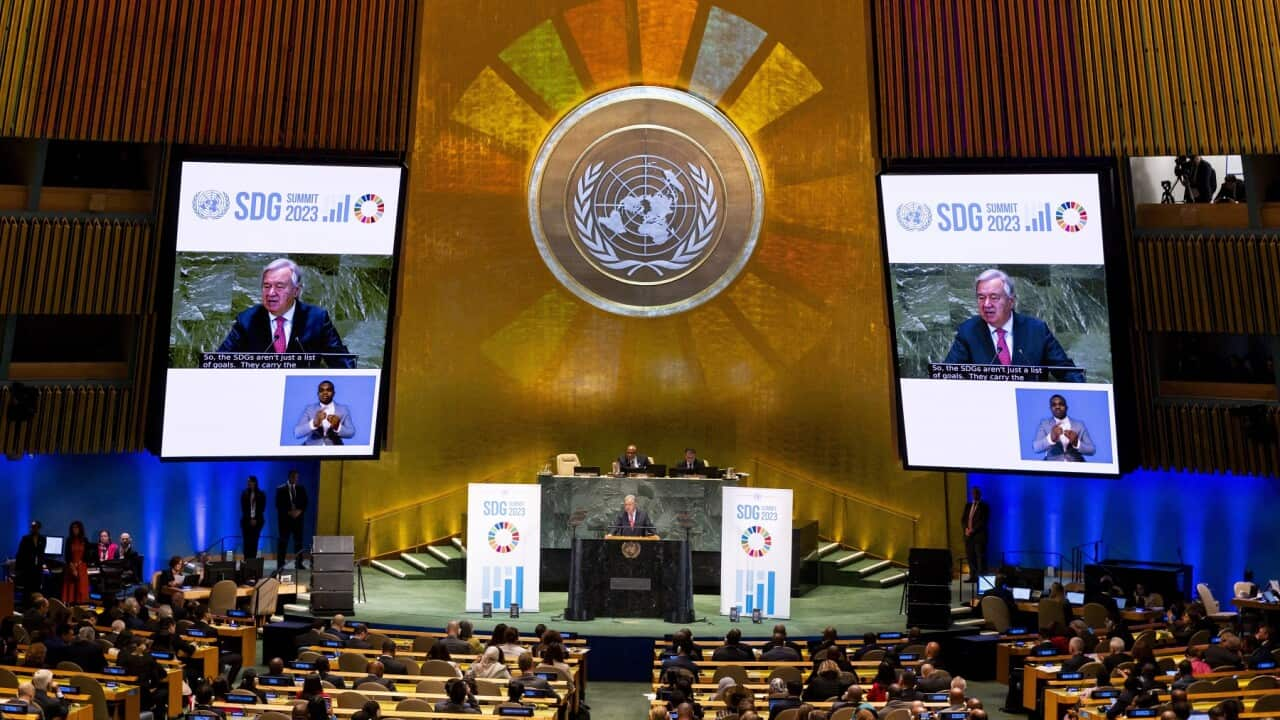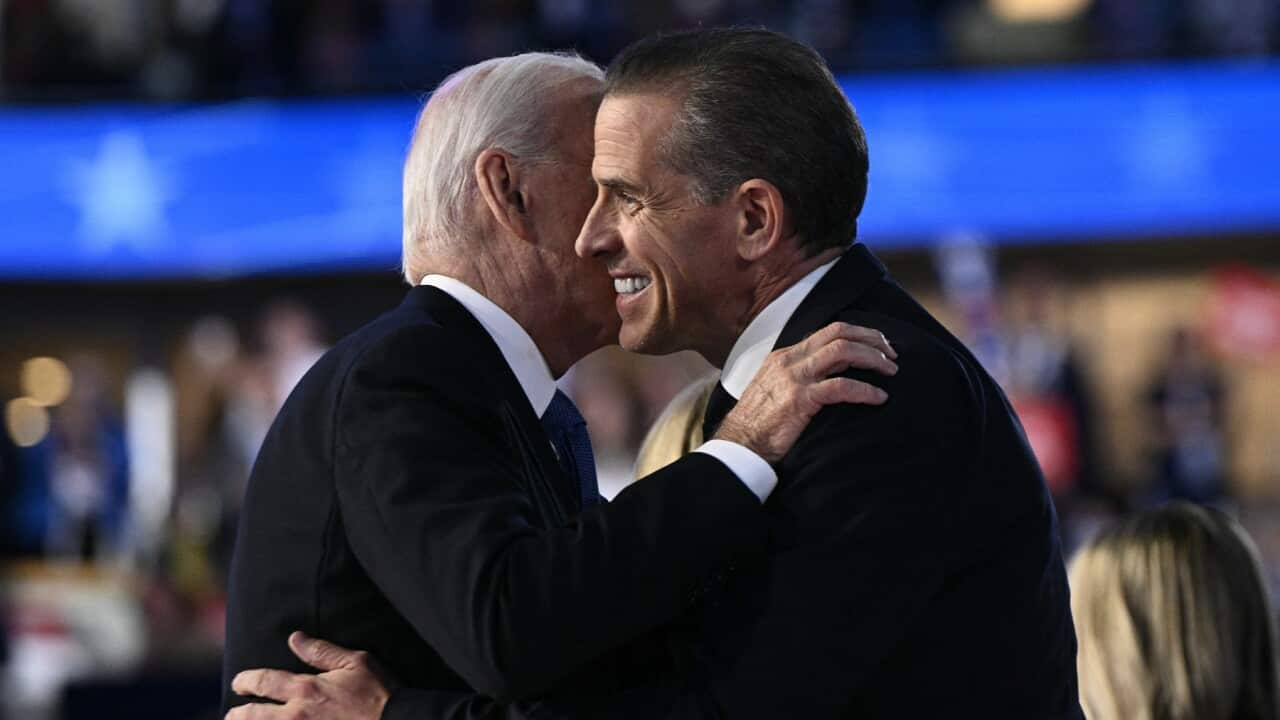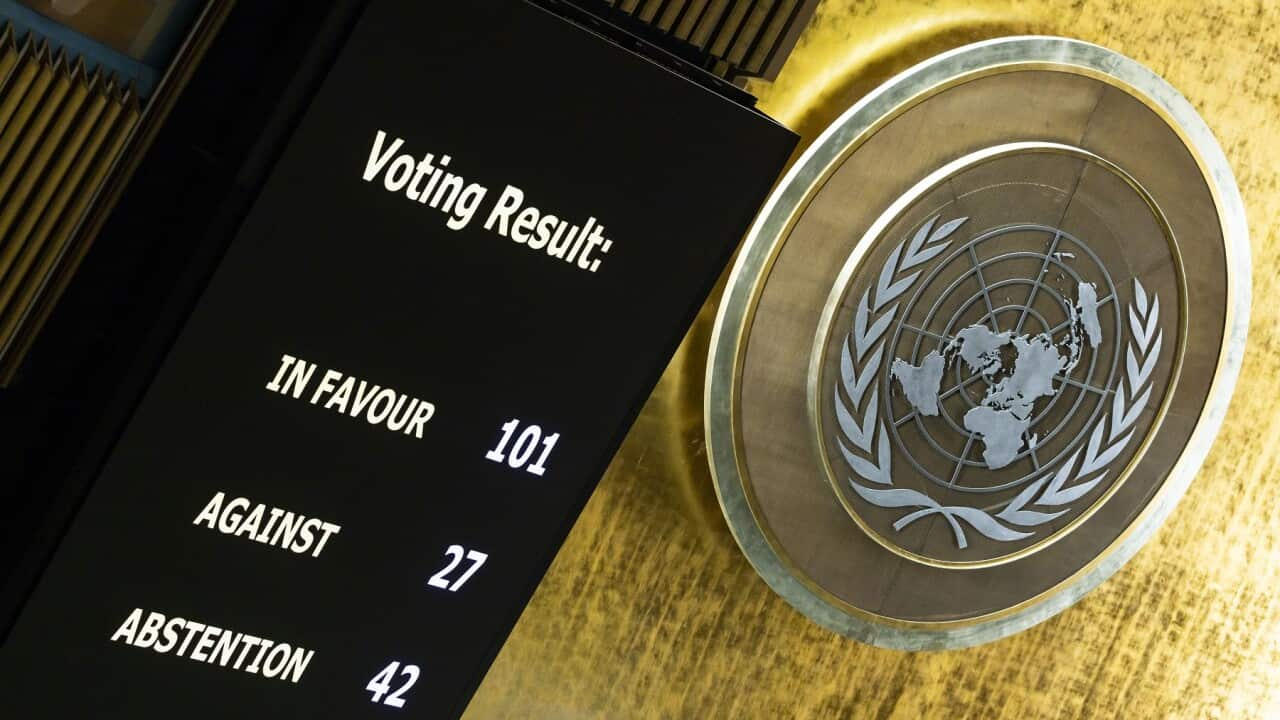TRANSCRIPT
It is eight years since United Nations Member States adopted the Sustainable Development Goals - commonly known as the S-D-Gs.
UN Secretary-General António Guterres admits it was an ambitious agenda.
“You made a solemn promise, a promise to build a world of health, progress and opportunity for all. A promise to leave no one behind. And the promise to pay for it. This was not a promise made to one another as diplomats from the comfort of this chamber. It was always a promise to people. People crushed under the grinding wheels of poverty. People starving in a world of plenty. Children denied the seat in the classroom. Families fleeing conflict seeking a better life. Parents watching helplessly as their children die of preventable disease. People losing hope because they can't find a job or a safety net when they need it. Entire communities are literally on devastation's doorsteps because of changing climate."
But he says progress has not been good:
"Yet today, only 15 percent of the targets are on track and many are going in reverse. Instead of leaving no one behind, we risk leaving the SDGs behind. So, Excellencies, the SDGs need a global rescue plan."
He told delegates action was needed on renewable energy, digitalisation, education, employment and climate change.
And a priority had to be food security:
"We must take action on hunger. In our world of plenty, hunger is a shocking stain on humanity and then an epic human rights violation. It is an indictment of every one of us that millions of people are starving in this day and age. Building on July's Food Systems Summit's stocktake, we are marshaling finance, science, they innovations, and policy and governance support to help countries transform food systems so all people can access a healthy and nutritious diet."
Brazil's President Lula da Silva sent Secretary General and President of the National Commission for the Sustainable Development Goals, Marco Macedo, to address delegates.
He said Brazil's new government was rejoining global efforts to build a fairer and more sustainable planet.
"We want a world that is capable of welcoming all its inhabitants with dignity. We want a world that leaves no one behind."
France's Minister for Europe and Foreign Affairs, Catherine Colonna, commented in her speech to delegates on factors that have undermined progress towards the sustainable development goals.
"The fragile progress made has been undermined by wars such as the war of aggression launched by Russia and Ukraine, by pandemics, climate change, widespread violations of human rights, and therefore vulnerable people, particularly women and girls, are systematically paying the highest price. We must act more resolutely. France, for its part, to leave no one behind, has become the fourth largest donor of official development assistance in 2022, with a total amount of 15 billion euros. We are also one of the main humanitarian donors and will be stepping up our humanitarian aid to 1 billion euros per year in 2025."
Poland's president, Andrzej Duda [[an-dree doo-da]] also raised the issue of the war in Ukraine.
He says part of the key to sustainability is to create appropriate infrastructure.
“In times of crisis, investing in social resilience and social safety nets is particularly important to ensure that no one is left behind. In Poland, our priority is to provide support especially to persons in vulnerable situations, as well as families, children, and older persons. Poland’s solidarity and social resilience was best manifested by the remarkable assistance to Ukrainian refugees fleeing the Russian aggression.”
In all, there are 17 Sustainable Development Goals and the UN is urging all countries - developed and developing - to join a global partnership to achieve them.













